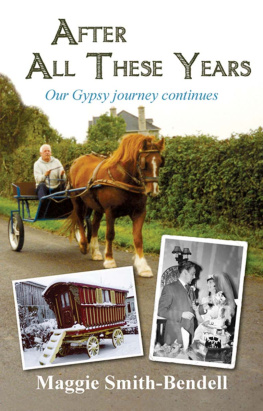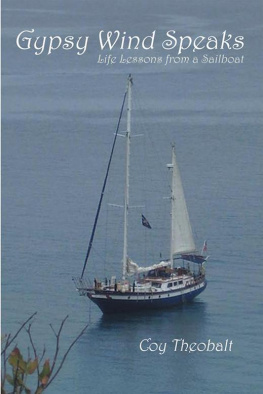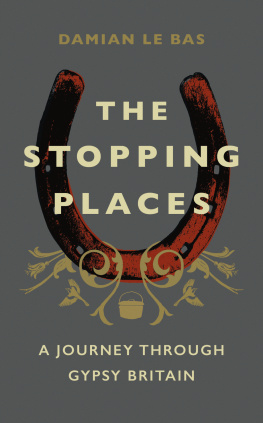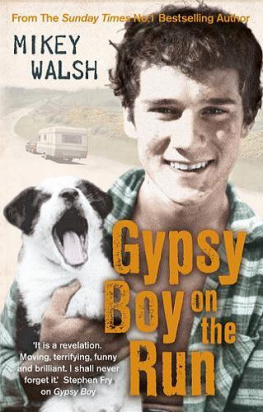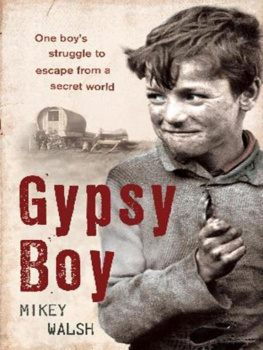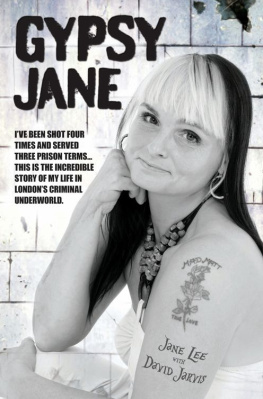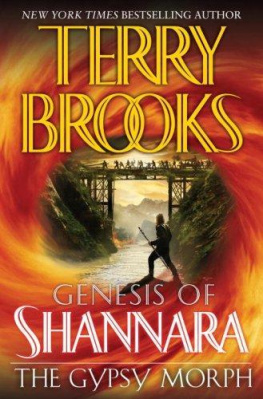

First published in Great Britain in 2013 by
University of Hertfordshire Press
College Lane
Hatfield
Hertfordshire AL10 9AB
Copyright Maggie Smith-Bendell 2013
The right of Maggie Smith-Bendell to be identified as the author of this work has been asserted by her in accordance with the Copyright, Designs and Patents Act 1988.
All rights reserved. No part of this book may be reproduced or utilised in any form or by any means, electronic or mechanical, including photocopying, recording or by any information storage and retrieval system, without permission in writing from the publisher.
British Library Cataloguing in Publication Data
A catalogue record for this book is available from the British Library
ISBN 978-1-907396-96-0
Design by Mathew Lyons
Printed in Great Britain by MPG Books Group Ltd
I dedicate this book to my husband Terry, who never once tried to take the Gypsy out of me, but instead embraced my lifestyle, while keeping his own intact. He gave me a gold band on my finger and two wonderful sons - Michael and Jason. He encouraged me in every way to do the work on behalf of my people that I chose to do, to make them a better life, gain health care and education and somewhere to live. He gave me a love I had never known and the will to carry on after I lost him in death.
Thank you, my plum, for your deep love and support. And most of all for being my Gorgie Mush for fifty years.
Contents
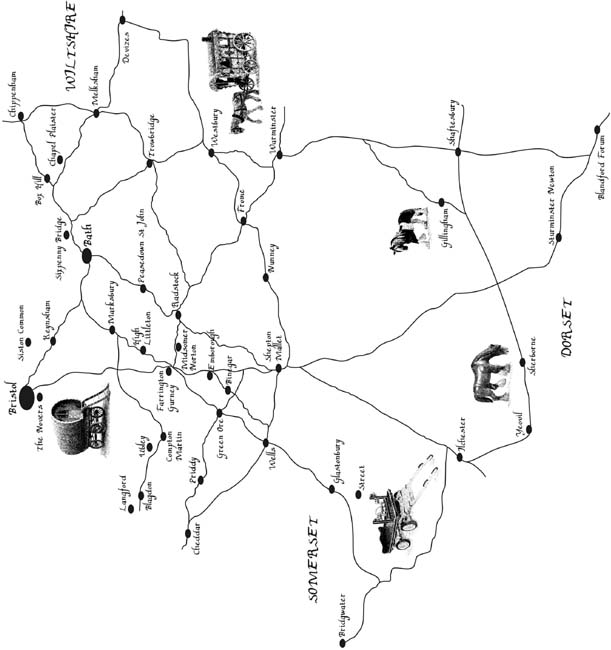

Chapter One
Summer Months
I WAS LUCKY ENOUGH to be born into a unique race of people, the Romani Gypsy race. Deep in the heart of Somerset, my family lived a nomadic lifestyle, as did our ancestors for hundreds of generations before us. Steeped in the culture and customs of our forefathers, we lived by tradition, travelling the roads and lanes not only of Somerset but of Devon, Dorset, Wiltshire and Herefordshire. Often we strayed into other counties too, either by intention or on a whim, seeking the all-important work that kept body and soul together. Mostly this was field work, or wed hawk our wares and swag round the settled communitys doors: handmade wooden flowers and clothes pegs, scrubbing brushes, bootlaces and wax-paper roses, medicines and potions. We picked the edible wild berries to sell in season too, as well as mushrooms and many other things. The grand horses that was bred from our own faithful working stock was brought on and broke in as drivers and sold at our Gypsy horse fairs.
Thus we travelled and grew up. We had a peaceful sort of life. We entertained ourselves with singing and dancing. Children had very few toys if any there was no room to carry such things. But then, come to think on it, we had no real need of them: we had all the trees, farmers gates to swing on and horses, dogs and little bantam chicks to play with.
Once we had pulled off the road and done our chores (such as fetching wood and water), our time was our own. Summer evenings would see us out round the fields and lanes picking baskets full of wild flowers for our mams to sell, or collecting the new shoots of herbs to make medicine. We never had a dull moment, really. Life was full to the brim. It was our life, the only one we knew, and the only one we could wish for. It may sound as though we chavvies (children) had very little time for ourselves but that was far from being the case.
Our special time was when we gathered and sat round the yog (fire) - or when me Dad would whisper, Keep quiet and follow me, I got some thing to show yis. It could be anything from a nest of young birds to a badger set where the very young badgers were at play or even a nest of hedgehogs filled with tiny young ones. And he would tell us all about the animals that he had shown us.
This was the way we learned, as he passed his knowledge of wildlife on to us. Life was very interesting: each day brought new things to see and learn about. As for working alongside our parents in the fields and hop gardens, we never really thought about it in terms of having to do it - we expected and accepted that it was part of how we lived. For instance, when we pulled onto the pea fields the first thing we chavvies looked for was buckets to pick the peas in, because buckets filled quicker than the pea nets and we felt we picked more that way.
As for having time to play, we had loads of free time, mostly in the evenings when we could wander off and do our own thing, so long as we didnt get in any trouble such as falling in a pond or ditch because if there was any water about we were sure to find it. It drew us like magnets.
Ive always said we had the best of childhoods.
Looking back, there were three main stages to my life. The first was being reared and raised within a close, loving family, taught from a very early age how to get me living and how to survive by working the land and using our own Gypsy skills. I experienced the joy of watching me Dad and all the other men whittle beautiful flowers from an elder stick. Of sitting round our yog and seeing dozens upon dozens of wooden clothes pegs falling to the ground, finished and ready to sell. Of the smell of herbs simmering in an old black pot kept for just this very purpose to make the potions and medicines - some for us to keep for our own use and some to sell or barter away.
Living in the open air meant our cooking smells floated far and wide, giving many a gorgie (non-Romani) hunger pangs as they passed by. My memory of my childhood is fresh in me minds eye the feeling of being looked after and safe from harm, feeling peckish but never what you would call hungry. Oh no, there was no hunger the skills of the men and boys enabled them to catch fresh meat each day and then the best of cooks, our mothers, saw to all our needs. The Romani women were always ready to go out calling to earn bread money and could stretch a shilling a mile filling her chavvies bellies would be uppermost in her mind, and after that maybe shed get a bit of baccy for her man.
Spring and summer were the favourite times. Spring would kind of wake us up and bring the idea of setting off travelling to the front of our minds. Spring would mean new paint on the wagons. Mares would be waiting the last few weeks to have their foals. The long, dark winter nights and cold days would finally be shook off. It was a new beginning, waiting for the wild flowers to spring into life: snowdrops, daffies, bluebells, primroses and cowslips all would be gathered in turn, bunched up and hawked round doors. And the little wild strawberries would be picked and used to colour and flavour medicines, as would the wild, sweet-smelling violets, especially the white ones. All through the year something or other would come into season to be picked and used for the good of all of us.
Sometimes wed sell nosegays of buttercups and dandelions tied up with herbs - these two plants which everyone seems to think of as weeds but which should be given at least a second glance at close quarters. They really are beautiful flowers and so bright in their colours. The dandelion can be used in all sorts of ways which I am not at liberty to disclose. The reason Im not at liberty to disclose these ways is that the herbs and plants we blend with them to make medicines and potions are known to us Romanies by different names from those of the settled community. If folks tried to copy a recipe they could very well pick the wrong plants and make themselves really ill instead of better. I can tell you that the old dandelion was used to make drinks, and the flower stem, which contains a sticky milky substance, was used with a mixture of other plants to make potions for horse ailments.
Next page
